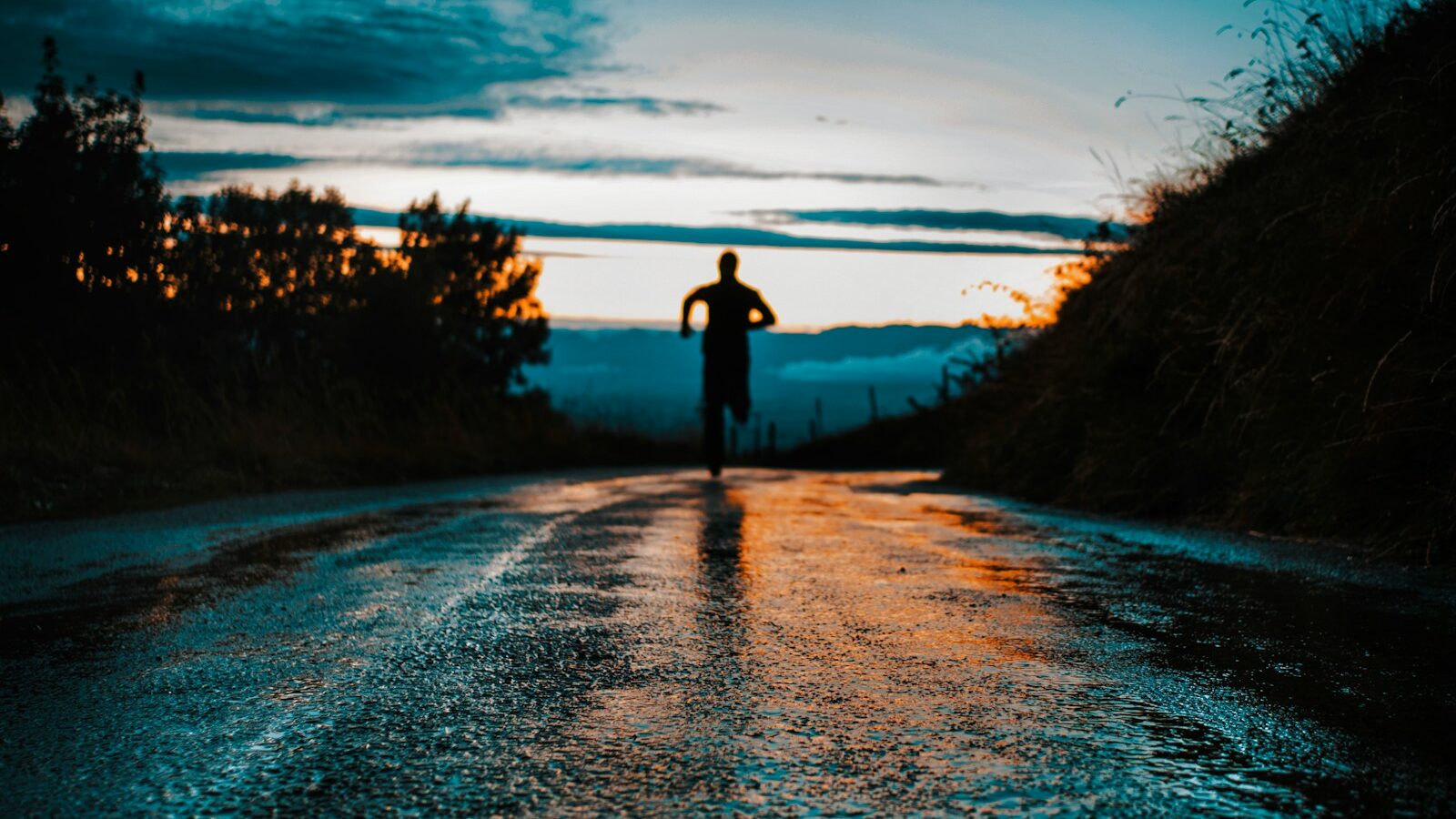Consider just how many of us (up until now) have been going about our days on autopilot, in essence half asleep and often unaware of what’s going on inside and around us. There’s a stark consequence to life on autopilot – we risk missing vital opportunities. Opportunities to learn from a project, to give a talk, to contribute ideas to an important decision, to speak up for ourselves, to support someone in their work.
Information is endlessly available to us: where shall wisdom be found?
– Harold Bloom
We have constant and instant access to information: 24-hour news, the internet – all this instantaneous communication encourages us to read and absorb information quickly. It can make us impatient and leave us wanting more. Information is a bit like junk food – too much of it can make us ill. Just as it is important to eat nutritious food, it is important to be careful what we think and how we think about it.
Reflection comes from the Latin word ‘reflectere’, meaning to bend back, to turn back or to turn around. Where reflection means to think about something, not all thinking is reflecting. Reflective thinking takes practice. It requires us to slow down, to pause and to reduce information input.
The process of reflection helps us make sense of our day-to-day experiences, it can help su to move forward, to come to decisions, to create a course of action, to challenge ourselves to switch off autopilot and our habitual ways of doing and thinking.
‘I know more than I know and must learn it from myself.’ This wonderful line from the novel Gilead by Marilynne Robinson captures the power of reflective thought. When we reflect we are our own teacher, through reflection, we bring consciousness to something we already know (at the unconscious level) and teach ourselves.
Make reflective thinking a habit
It’s important to allocate at least 10-15 minutes for reflection a few times a week in an environment that supports you and away from your desk and computer, and when you’re in a positive state of mind. Are you at your best in the morning or evening? When is your mind more open, alert?
Switch off all background noise and devices in order to create the best conditions to clarify your intentions and to help you verbalise your thoughts and feelings.
It’s also helpful to capture reflections as our insights and ideas can be fleeting.
As an early bird, my best time to reflect is between 6-7am. I make myself a cup of coffee and sit in my favourite chair (this is my second preferred way of reflecting after ‘reflecting while walking in open green space and nature’).
I have an A5 notebook that I only use to write down my reflections so that I can read back and see the threads, ideas, tangles I can get into, how my life is going, developments and how I have moved forward.
Sometimes, when I need to reflect on my work or when I have a bigger decision to make I would choose to go on a hike in the countryside on my own.
The reflection toolkit
Reflection requires a number of skills that can easily be developed.
- Self-awareness – an ability to pause, to pay attention to thoughts and feelings and to self-question non-judgementally. This will help you to become aware of your habitual ways of thinking and behaving in any given situation).
- Description – it is important to be able to describe / recall situations neutrally. These questions can help. What What did I see and feel happening? What background factors played a role? What were the things under my control? How would other people involved describe me and the situation?
- Critical analysis – the ability to challenge your assumptions by asking yourself: is what I am thinking about myself, others or the situation true? Where do I need to focus next?
- Review – an ability to pause and to ask: ‘What would I do differently next time and why? How exactly will I do it and how will that give me the outcome I want?’
- New learning and next steps – an ability to learn about yourself from experiences (your potential and areas for improvement) rather than seeing yourself or others as a failure.
Ask yourself: What have I learnt about myself? How can I use my potential best? Where is my biggest area for improvement?
I regularly use these tools to reflect. To gain clarity about what worked and what didn’t work so well, to gain insights into limiting believes and assumptions, key learnings and where to focus next.
Apply these tools for reflection to anything, big or small – they will add depth to how you live your life, rendering it more satisfying and meaningful as a result.
Alternative reflection models
Here are four potential ways to reflect, depending on your preference.
Talking to yourself
Having a conversation with yourself in the form of questions and answers.
Reflective writing
When we write things down we support the process of reflection because when we write thoughts down, we ‘objectify’ them. Our thoughts are now on the page, ready and waiting to be referred back to. When we sit down to think, our thoughts can sometimes be a elusive.
Reflective walking
Reflecting while walking is powerful. I have my best ideas when I’m out and about – hence my ‘coaching while walking’ approach. When we walk our brain waves slow down, clearing the mind for fresh thinking and ideas. Many well-known thinkers recommend reflecting while walking as an aid for thinking: Nietzsche said: ‘All truly great thoughts are conceived by walking.’
Reflecting with others
This can be done as a pair or in a group. Firstly decide on a topic you want to reflect on e.g. an upcoming project, reviewing a report, an important decision etc. Assign someone as a listener (the listener will also be the timekeeper). The listener’s role is to listen attentively for 10 minutes to the speaker’s reflections on the given topic. If there are silences, that’s fine too. The roles then swap.
After everyone has had a chance to reflect aloud, go into another round of reflecting about what you’ve heard. Five minutes each is often enough. You can continue until the process comes naturally to an end. Note taking is useful to ideas and new insights.
Reflection can be a very empowering process. It can help you to make sense of your day; to come to decisions, to set a course of action; to step away from your habitual way of doing and thinking and discover new freedoms and opportunities.
Consider just how many of us (up until now) have been going about our days on autopilot, in essence half asleep and often unaware of what’s going on inside and around us. There’s a stark consequence to life on autopilot – we risk missing vital opportunities. Opportunities to learn from a project, to give a talk, to contribute ideas to an important decision, to speak up for ourselves, to support someone in their work etc.
Information is endlessly available to us: where shall wisdom be found?
– Harold Bloom
We have constant and instant access to information: 24-hour news, the internet – all this instantaneous communication encourages us to read and absorb information quickly. It can make us impatient and leave us wanting more. Information is a bit like junk food – too much of it can make us ill. Just as it is important to eat nutritious food, it is important to be careful what we think and how we think about it.
Reflection comes from the Latin word 'reflectere', meaning to bend back, to turn back or to turn around. Where reflection means to think about something, not all thinking is reflecting. Reflective thinking takes practice. It requires us to slow down, to pause and to reduce information input.
The process of reflection helps us make sense of our day-to-day experiences, it can help su to move forward, to come to decisions, to create a course of action, to challenge ourselves to switch off autopilot and our habitual ways of doing and thinking.
‘I know more than I know and must learn it from myself.’ This wonderful line from the novel Gilead by Marilynne Robinson captures the power of reflective thought. When we reflect we are our own teacher, through reflection, we bring consciousness to something we already know (at the unconscious level) and teach ourselves.
Make reflective thinking a habit
It’s important to allocate at least 10-15 minutes for reflection a few times a week in an environment that supports you and away from your desk and computer, and when you’re in a positive state of mind. Are you at your best in the morning or evening? When is your mind more open, alert?
Switch off all background noise and devices in order to create the best conditions to clarify your intentions and to help you verbalise your thoughts and feelings.
It’s also helpful to capture reflections as our insights and ideas can be fleeting.
As an early bird, my best time to reflect is between 6-7am. I make myself a cup of coffee and sit in my favourite chair (this is my second preferred way of reflecting after ‘reflecting while walking in open green space and nature’).
I have an A5 notebook that I only use to write down my reflections so that I can read back and see the threads, ideas, tangles I can get into, how my life is going, developments and how I have moved forward.
Sometimes, when I need to reflect on my work or when I have a bigger decision to make I would choose to go on a hike in the countryside on my own.
The reflection toolkit
Reflection requires a number of skills that can easily be developed.
- Self-awareness – an ability to pause, to pay attention to thoughts and feelings and to self-question non-judgementally. This will help you to become aware of your habitual ways of thinking and behaving in any given situation).
- Description – it is important to be able to describe / recall situations neutrally. These questions can help. What What did I see and feel happening? What background factors played a role? What were the things under my control? How would other people involved describe me and the situation?
- Critical analysis – the ability to challenge your assumptions by asking yourself: is what I am thinking about myself, others or the situation true? Where do I need to focus next?
- Review – an ability to pause and to ask: ‘What would I do differently next time and why? How exactly will I do it and how will that give me the outcome I want?’
- New learning and next steps – an ability to learn about yourself from experiences (your potential and areas for improvement) rather than seeing yourself or others as a failure.
Ask yourself: What have I learnt about myself? How can I use my potential best? Where is my biggest area for improvement?
I regularly use these tools to reflect. To gain clarity about what worked and what didn’t work so well, to gain insights into limiting believes and assumptions, key learnings and where to focus next.
Apply these tools for reflection to anything, big or small – they will add depth to how you live your life, rendering it more satisfying and meaningful as a result.
Alternative reflection models
Here are four potential ways to reflect, depending on your preference.
Talking to yourself
Having a conversation with yourself in the form of questions and answers.
Reflective writing
When we write things down we support the process of reflection because when we write thoughts down, we ‘objectify’ them. Our thoughts are now on the page, ready and waiting to be referred back to. When we sit down to think, our thoughts can sometimes be a elusive.
Reflective walking
Reflecting while walking is powerful. I have my best ideas when I’m out and about – hence my ‘coaching while walking’ approach. When we walk our brain waves slow down, clearing the mind for fresh thinking and ideas. Many well-known thinkers recommend reflecting while walking as an aid for thinking: Nietzsche said: ‘All truly great thoughts are conceived by walking.’
Reflecting with others
This can be done as a pair or in a group. Firstly decide on a topic you want to reflect on e.g. an upcoming project, reviewing a report, an important decision etc. Assign someone as a listener (the listener will also be the timekeeper). The listener’s role is to listen attentively for 10 minutes to the speaker’s reflections on the given topic. If there are silences, that’s fine too. The roles then swap.
After everyone has had a chance to reflect aloud, go into another round of reflecting about what you’ve heard. Five minutes each is often enough. You can continue until the process comes naturally to an end. Note taking is useful to ideas and new insights.
Reflection can be a very empowering process. It can help you to make sense of your day; to come to decisions, to set a course of action; to step away from your habitual way of doing and thinking and discover new freedoms and opportunities.
Interested in this topic? Read Working through coronavirus: reflective versus reactive decision making during a crisis.








5 Responses
Thank you, it was interesting
Thank you, it was interesting and informative. I often find myself thinking that I spent the day on autopilot. Now I will try to overcome it.
Hello Marina
Hello Marina
My apologies for my late reply.I did not get a notification of your comment. I was just looking at this article again because one of my coaching clients would like to establish a regular reflection practice. And I saw your comment.
I’m glad you found my article helpful.
With best wishes,
Karen
Hello Martin –
I’ve only just seen your comment here. My sincere apologies for not having seen this early.
Sadly, I don’t get notified when I receive a comment.
I’d be happy to offer you a complementary chat to explore the practice of reflection.
Do get in touch if you’d like to book 45 minutes with me.
With best wishes,
Karen
This is a great insight into
This is a great insight into the importance of reflection in our daily lives. The idea of reflecting on information instead of simply taking it in is an important lesson for us all. With the amount of information we are exposed to, it is easy to become overwhelmed and impatient. Taking the time to pause and reflect on the information we receive can help us to make sense of it and come to our own conclusions. Reflective thinking can help us to move forward, make decisions, and challenge our habitual ways of thinking.
Thank you for your comment. I
Thank you for your comment. I’m glad you found my article helpful.
I myself use reflection in my own life and encourage my coaching clients to establish a reflection practice. It doesn’t require much time but awareness to make some time to reflect on how things are going for us.
With best wishes,
Karen